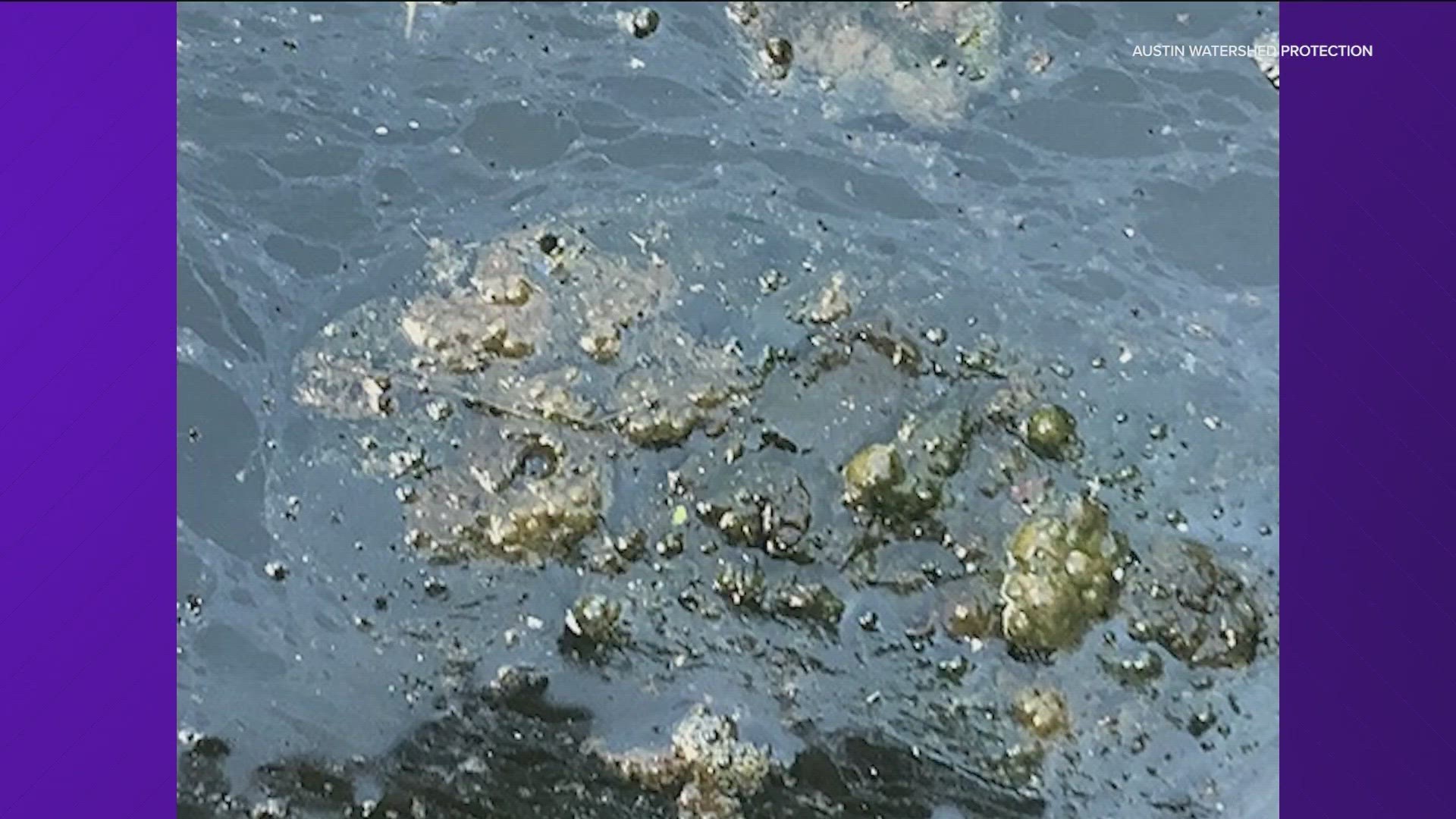AUSTIN, Texas — The Austin Watershed Protection Department said deadly blue-green algae has been found on Lady Bird Lake and Lake Austin.
It is asking that people "assume algae may be toxic and avoid it."
According to the City of Austin, crews detected blue-green algae at monitoring sites on Lady Bird Lake and Lake Austin, except Walsh Boat Landing, on Monday.
At this time, a sample has been taken and test results won't be available until June. Until the results are in, crews are asking people to take the following precautions:
- Do not drink water directly from natural water bodies
- Avoid contact with algae
- Rinse skin or animal fur after contact with water
- Do not allow dogs to lick their fur prior to rinsing
Also, crews are asking that people do not enter a natural water body if the following has happened:
- Water is warm or stagnant or you see scum, film or algae
- There has been rain in the past three days
- There are lots of dogs present
If a person or animal is exposed to toxic blue-green algae, they can become sick. Symptoms depend on several factors, including how the person or animal was exposed, how long they were exposed and which type of toxin they were exposed to.
Dr. Brent Bellinger, the conservation program supervisor with Watershed Protection, said for dogs, symptoms will hit quickly – between 30 minutes to an hour after exposure.
"If a dog was exposed, they would start having tremors, they'd be unsteady on their feet, probably foaming at the mouth. There's, you know, a host of other things, depending on, you know, kind of the amount of toxin that they're exposed to," Bellinger said.
Bellinger also said this year, Watershed Protection plans to test for the toxin in the algae every two weeks year-round. As the summer months creep closer for Central Texas, that means hotter temperatures and algae blooms occurring more frequently.
The toxin that is present in algae is deadly. In 2019, it killed several dogs.
You can learn more about the different symptoms associated with toxic blue-green algae, also known as cyanobacteria, on the Centers for Disease Control and Prevention website.
If you, a loved one or a pet have any sudden, unexplained symptoms after swimming you are asked to contact your medical provider, veterinarian or the Texas Poison Control Center at 1-800-222-1222.

